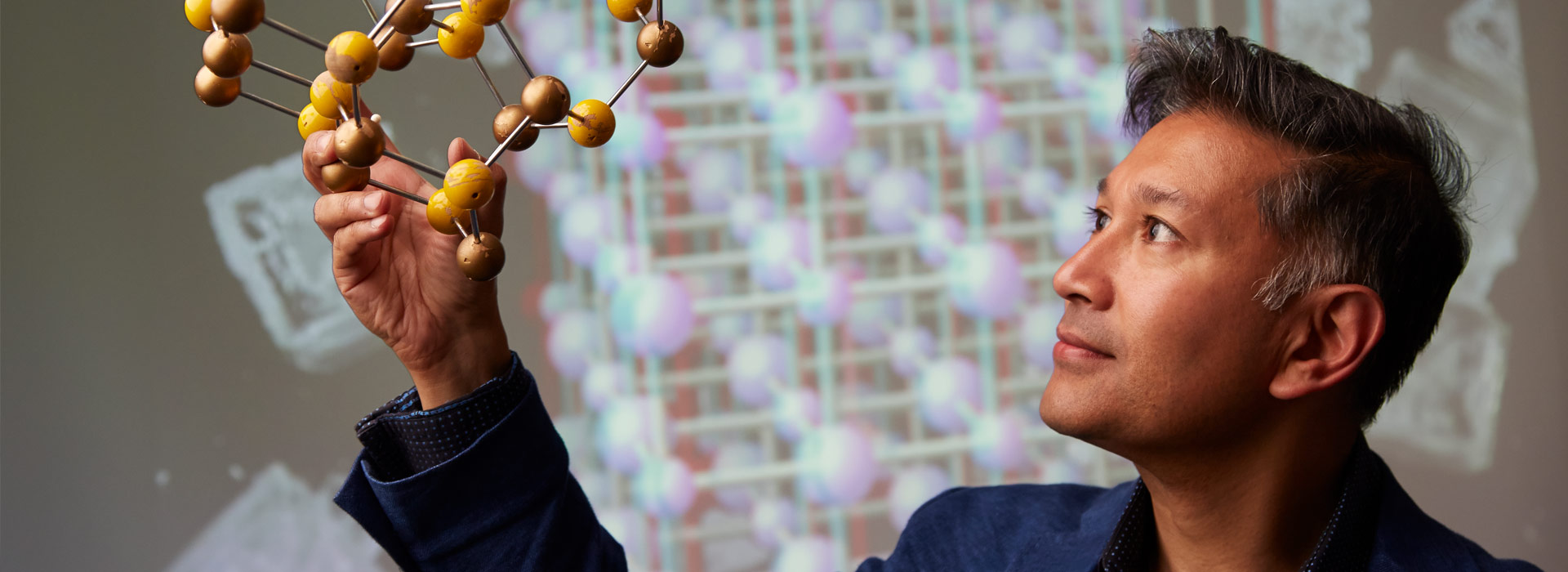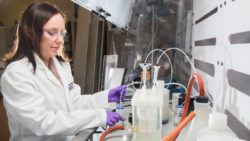New insights into the atomic level operation of energy materials could unlock the door to new families of compounds with a step change in efficiency and performance.
We are exploring and developing new materials for the next generation of green energy devices, including solar cells, lithium batteries, thermoelectrics and fuel cells. Materials performance lies at the heart of the development of green energy technologies, and computational methods now play a vital role in modelling and predicting the atomic-scale properties of novel materials.
Our research in this field has recently led to securing a £11.2m grant from The Faraday Institution to launch CATMAT, a Bath-led collaborative project to improve lithium-ion battery lifespan and electric vehicle range.
Our work has also fostered a new industrial collaboration with Lambda Energy and has attracted further funding from Innovate UK to develop new advanced solar materials.
Key Research Papers
JACS., 2018, 140, 362
Nature Commun., 2017, 8, 15218
ACS Energy Lett., 2017, 2, 2424
Adv. Energy Mater., 2017, 7, 1601043
Nature Commun., 2016, 7, 13374
Nature Commun., 2015, 6, 7497
Partners


Alumni Involved











